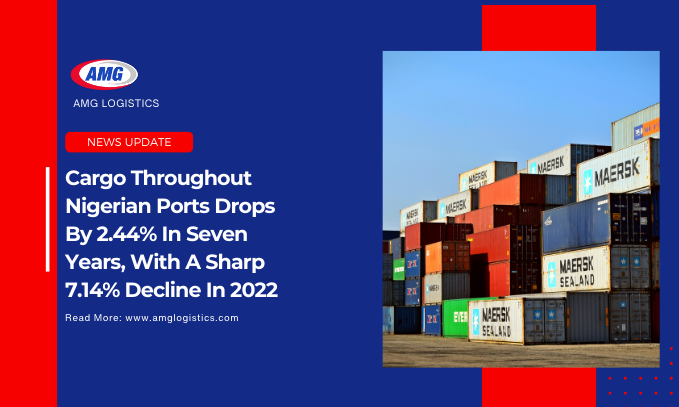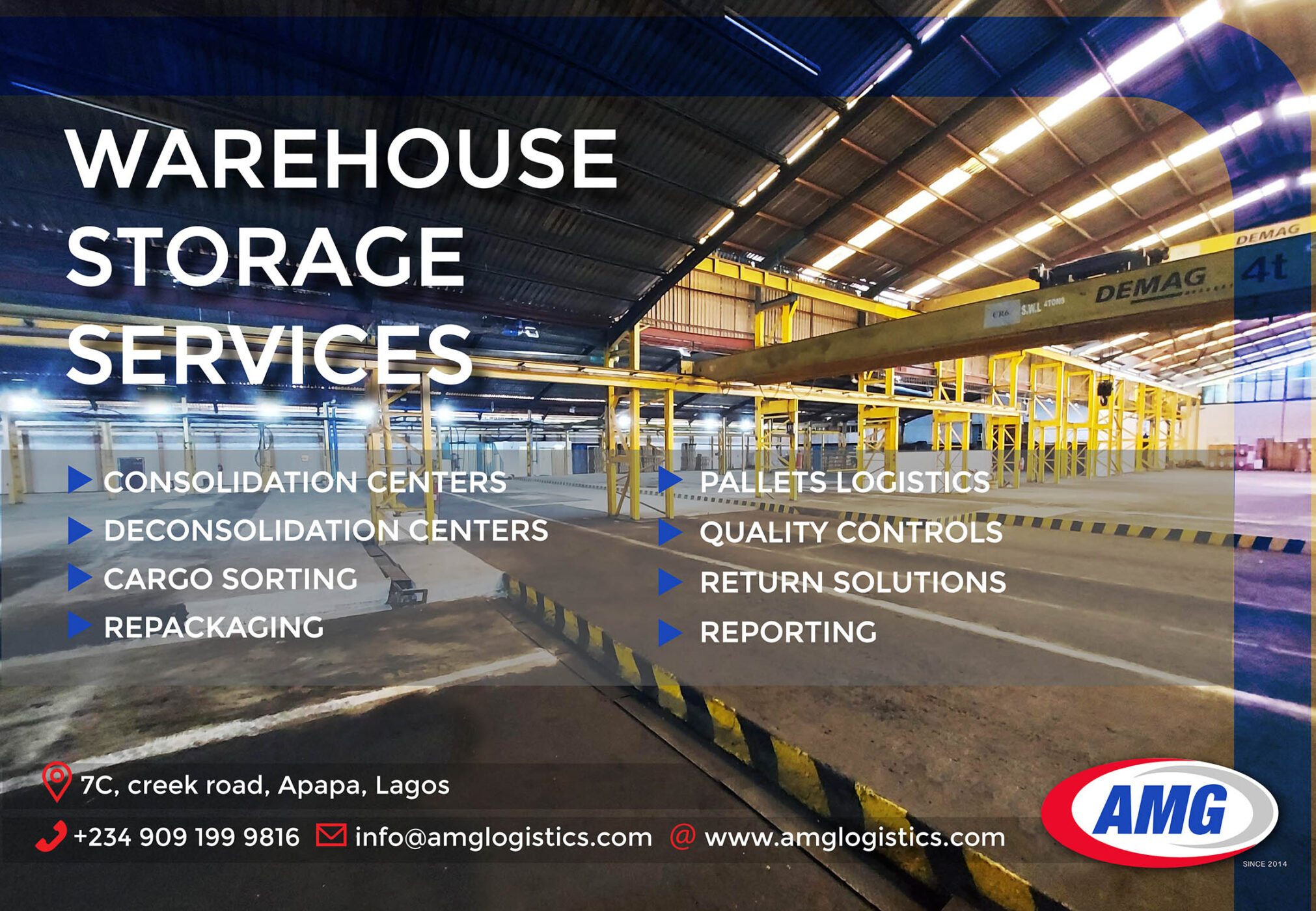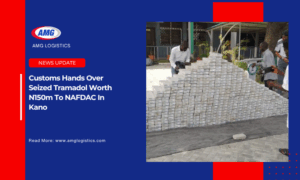Checks by Shipping Position Daily have revealed a gradual decline in cargo throughput at Nigerian ports over the last seven years, with a total drop of 2.44% between 2015 and 2022. More alarmingly, the data show a sharp 7.14% decrease in cargo throughput within a single year, from 2021 to 2022.
According to port statistics obtained by our correspondent, cargo throughput at Nigerian ports stood at 77.387 million metric tons in 2015 decreasing to 75.498 million metric tons in 2022.
However, the most significant drop occurred between 2021 and 2022 when throughput fell from 81.299 million metric tons in 2021 to 75.498 million metric tons in 2022 representing a 7.14% decrease in just one year.
Further checks revealed that decline in overall cargo throughput is linked to decreases in specific cargo types. Liquid bulk, which formed the largest share of throughput in both years, fell from 43.037 million metric tons in 2021, to 40.122 million metric tons in 2022, General cargo also dipped, from 24.618 million metric tons in 2021 to 22.145 million metric tons in 2022. Dry bulk cargo remained relatively steady, but the overall impact from the drop in liquid bulk and general cargo was significant.
In addition to the reduction in cargo volumes, ship traffic (ocean-going vessels) and container traffic also saw declines. The number of ocean-going vessels decreased from 4,927 in 2015 to 3,803 in 2022, and the gross registered tonnage (GRT) of these ships fell from 141.202 million in 2015 to 116.684 million in 2022
Container traffic (TEUs) followed a similar pattern, peaking in 2021 at 1.979 million TEUs before dropping to 1.708 million TEUs in 2022
Meanwhile, the head of research at Sea Empowerment Research Centre, Dr. Eugene Nweke,has shed light on the enduring challenges that continue to plague Nigeria’s maritime sector,
Nweke in a recent analysis sent to our correspondent stated that while the sector possesses immense potential to boost Nigeria’s economy, ongoing inefficiencies, high costs, and security concerns significantly hinder its growth and competitiveness.
The analysis revealed that cargo clearance costs in Nigeria range from $2,500 to $5,000 per Twenty-Foot Equivalent Unit (TEU).
In stark contrast, neighbouring countries such as Ghana and Côte d’Ivoire charge between $1,000 and $2,100 for comparable services.
He stated that this considerable difference in costs has led many importers to forgo Nigerian ports, opting for more economical alternatives that ultimately deprive the nation of vital revenue.
He further stated that the exorbitant ship dues and associated charges at Nigerian ports exacerbate the situation.
He explained that the current estimates indicate that ship dues in Nigeria range from $15,000 to $30,000, while similar charges in Ghana fall between $5,000 and $10,000.
He maintained that high fees, combined with long dwell times and logistical inefficiencies, contribute to escalating demurrage and storage charges, further dissuading shipping lines from utilizing Nigerian ports.
The research center further noted that the security situation in the Gulf of Guinea complicates matters further, as the region remains notorious for piracy and oil bunkering activities.
He said high piracy rates not only inflate insurance premiums for shipping lines but also deter potential investors, severely undermining the attractiveness of Nigeria’s maritime sector. Analysts assert that if the situation does not improve, Nigeria will continue to lag behind its West African counterparts.
Nweke noted that calls for comprehensive reforms have intensified, emphasizing the urgent need for modernization within the sector.
He said “The essence of this operational retrospect is to draw the attention of the Minister and the Ministry of Marine And Blue Economy on the reality of our port industry and the need to look inwards on the following:
“Take deliberate steps to correct the wrong image on the internet cum global perception that Nigerian Ports are highly business unfriendly and expensive.
“Take adequate measure to strike a balance between cost function charges on cargo and illogical charges which constitutes an exploitation of the shipping lines who in turn escalate such charges to the Nigerian Shippers, thus, multiplying the effects of the hyper inflation rate in the country” he said.





